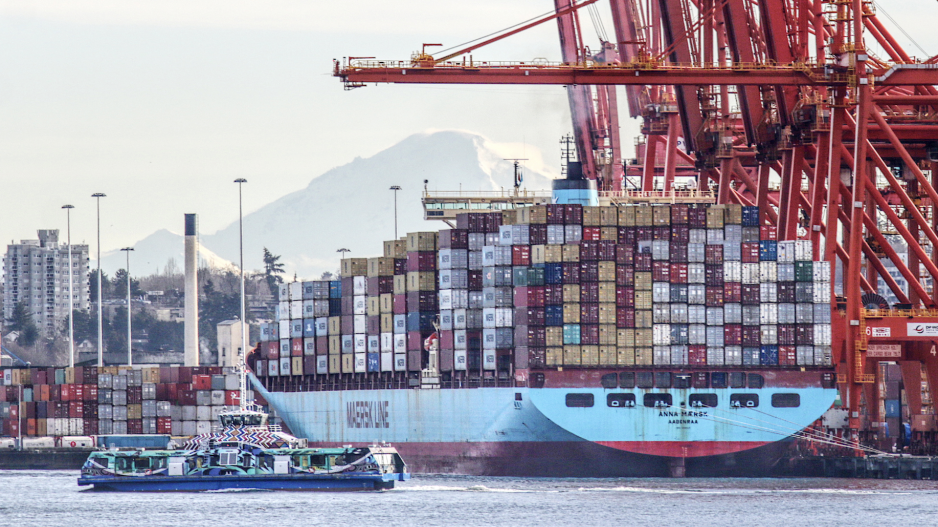A global trade analyst says a potential strike for more than 7,000 terminal cargo movers in ports throughout British Columbia could have dire consequences for not only the Canadian economy, but globally as well.
International Longshore and Warehouse Union Canada, which represents workers who load and unload cargo at port terminals in cities such as Vancouver and Prince Rupert, said in a bulletin that its negotiating committee has authorized a strike vote.
Union president Rob Ashton said in the bulletin that the vote will take place June 9 and 10.
Neither the union nor the BC Maritime Employers Association have responded to a request for comment on the possible job action.
The employers association, which represents 49 private-sector employers in more than 30 ports across B.C., said in a statement on its website that it will continue to negotiate to reach "a fair and balanced deal" that ensures proper compensation and the competitiveness of B.C.'s ports.
Maritime employers association members ship everything from automobiles and coal to grain and containers.
Beacon Economics international trade adviser Jock O'Connell said the timing of a possible strike at B.C. ports coincides with ongoing labour strife at West Coast ports in the United States, as disputes between port officials and the longshore union's American counterpart disrupted terminal operations in places such as Oakland and Long Beach, both in California.
O'Connell said a combination of disruptions at B.C. and U.S. ports would seriously damage the West Coast's role in global shipping, and exporters would look to ports on the East Coast and the Gulf of Mexico as more reliable options.
"They've always had this ability to disrupt cargo flows, but the idea that we might see strike action on both sides of the border is simply unprecedented," O'Connell said of possible job action in B.C.
"This is seriously tarnishing the reputation of ports along the Pacific coast of North America as reliable gateways for international trade. If I'm a shipper and I have the discretion of moving goods through different ports of entry or exit, I'm more inclined to do so now than a year or two ago."
Longshore workers handle the loading and unloading of not only containers for items such as household goods and electronics, but also bulk commodities such as potash, lumber and agri-foods.
According to the maritime employers association's website, its members contribute $2.7 billion to the national GDP and handled roughly 16 per cent of Canada's total traded goods worth $180 billion in 2020.
In B.C., the collective agreement between cargo loading workers and the employers association expired on March 30, and they have been negotiating a new contract since February.
The two sides are currently in a cooling-off period until June 21, after the union filed a notice of dispute in March, citing a lack of progress in talks that required federally mandated conciliation.
Canadian law prevents either side from exercising their right to labour action for 21 days after the end of conciliation on May 30, and both sides have agreed not to file a 72-hour strike or lockout notice before June 21, leaving the earliest possible strike date of June 24.
O'Connell said longshore workers in American West Coast ports have been working without a collective agreement since July 2022, so while the unions in both Canada and the United States have "a great deal of leverage,"the willingness to use that leverage must also reflect workers' frustration in not having a deal in place.
Ultimately, neither side wins a protracted battle in either B.C. or the U.S. West Coast, he said.
"It's always worth keeping in mind that while the West Coast sports a certain geographical advantage in dealing with the Far East, ultimately the bulk of the population and industrial capacity is still east of the Rockies," O'Connell said.
"So, we are looking at an entirely different situation where ports on the West Coast face increased competition from ports elsewhere in North America," he said.
"When you are engaged in that kind of confrontation, the last thing you need is to have the prospectof a labour dispute disrupting cargo movement through your ports."
This report by The Canadian Press was first published June 6, 2023.
Chuck Chiang, The Canadian Press




